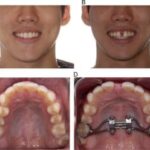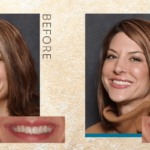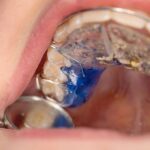When your child needs a palate expander, it can be a big adjustment for both of you. Palate expanders are orthodontic devices that widen the upper jaw to create more space for permanent teeth. While they are an effective treatment, they can be uncomfortable and take some time to get used to. Here are some tips to help your child adjust to a palate expander and make the process a little easier.
2. Encourage Proper Oral Hygiene: With a palate expander in place, it can be a bit challenging for your child to clean their teeth properly. Encourage them to brush and floss regularly, paying extra attention to the areas around the expander. Show them the proper techniques and provide them with any necessary tools, such as a special floss threader.
3. Offer Soft Foods: In the beginning, your child may experience some discomfort and difficulty chewing. Offer them soft foods that are easy to eat, such as soups, mashed potatoes, and yogurt. Avoid hard or sticky foods that could potentially damage the expander.
4. Provide Pain Relief: It’s normal for your child to experience some soreness and pain after the palate expander is initially placed or adjusted. You can offer over-the-counter pain relief medication, such as ibuprofen, to help alleviate their discomfort. However, always consult with your child’s orthodontist before giving them any medication.
5. Be Patient and Supportive: Adjusting to a palate expander takes time, and your child may feel frustrated or overwhelmed at times. Be patient with them and offer your support and encouragement throughout the process. Remind them that it will get easier with time and that the end result will be worth it.
By following these tips, you can help your child adjust to a palate expander more smoothly. Remember to consult with your child’s orthodontist if you have any concerns or questions along the way. With your support and guidance, your child will soon adapt to their palate expander and be on their way to a healthier smile.
The purpose of a palate expander is to correct the alignment of the teeth and improve the overall bite. By widening the upper jaw, the expander helps to create enough space for the teeth to come in straight and aligned. This can prevent future dental issues such as overcrowding, crossbite, or impacted teeth.
Additionally, a palate expander can also help improve breathing and speech. By expanding the upper jaw, it can create more room for the tongue and improve airflow, which can be especially beneficial for children who have breathing difficulties or speech problems.
Explaining the Process
Let your child know that the palate expander is custom-made to fit their mouth and that it will be attached to the roof of their mouth with bands or wires. Explain that the purpose of the expander is to create more space in their mouth, allowing their teeth to come in properly and improving their bite.
Reassure your child that their orthodontist will be there to guide them through the process and answer any questions or concerns they may have. Let them know that regular check-ups and adjustments will be necessary to ensure that the expander is working properly and achieving the desired results.
By explaining the process to your child in a clear and reassuring manner, you can help alleviate any fears or anxieties they may have about wearing a palate expander. This will make the adjustment period much easier for both you and your child.
Preparing for Discomfort
1. Explain the Purpose
Start by explaining to your child why they need a palate expander. Let them know that it’s a common orthodontic device used to widen their upper jaw and create more space for their teeth. Emphasize that the discomfort they may feel is temporary and necessary for achieving a beautiful and healthy smile.
2. Discuss the Process
Walk your child through the process of getting a palate expander. Explain that it will be attached to their upper molars and that they may feel pressure on their palate as it gradually expands. Assure them that the orthodontist will carefully monitor their progress and make any necessary adjustments.
3. Provide Pain Relief Options
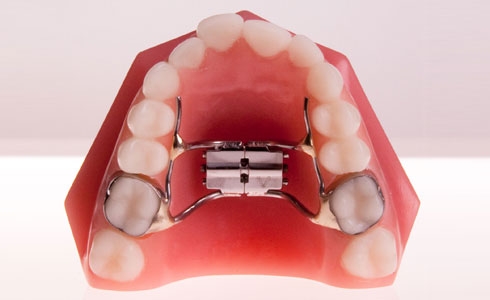
Inform your child about the various pain relief options available to them. This can include over-the-counter pain medication, such as ibuprofen, or using a cold compress to reduce swelling and discomfort. Make sure they understand how to use these options safely and consult with their orthodontist for specific recommendations.
4. Encourage Soft Foods

Suggest that your child stick to a soft food diet for the first few days after getting a palate expander. This will help alleviate discomfort while their mouth adjusts to the device. Offer them a variety of nutritious and easy-to-eat options, such as yogurt, mashed potatoes, smoothies, and soups.
5. Teach Proper Care
Show your child how to properly care for their palate expander. Demonstrate how to brush and floss around the device to prevent food particles from getting trapped. Encourage them to maintain good oral hygiene habits and remind them to schedule regular check-ups with their orthodontist.
By taking these steps to prepare your child for the discomfort associated with a palate expander, you can help them feel more at ease and confident throughout the adjustment process.
Encouraging Proper Oral Hygiene
2. Flossing: In addition to brushing, your child should also floss their teeth daily. Show them how to properly floss around the palate expander, making sure to reach all the areas between the teeth. You can use floss threaders or orthodontic floss to make it easier for them.
3. Mouthwash: Using an antimicrobial mouthwash can help kill bacteria and reduce the risk of infections. Encourage your child to rinse their mouth with mouthwash after brushing and flossing. Make sure they spit out the mouthwash and not swallow it.
4. Regular dental check-ups: Schedule regular dental check-ups for your child to monitor their oral health. The dentist can clean their teeth, check for any issues, and make any necessary adjustments to the palate expander.
6. Water intake: Drinking plenty of water throughout the day can help wash away food particles and reduce the risk of plaque buildup. Encourage your child to drink water after meals and snacks.
By following these tips, you can ensure that your child maintains proper oral hygiene while wearing a palate expander. This will help prevent any dental issues and promote their overall oral health.
Promoting Healthy Eating Habits
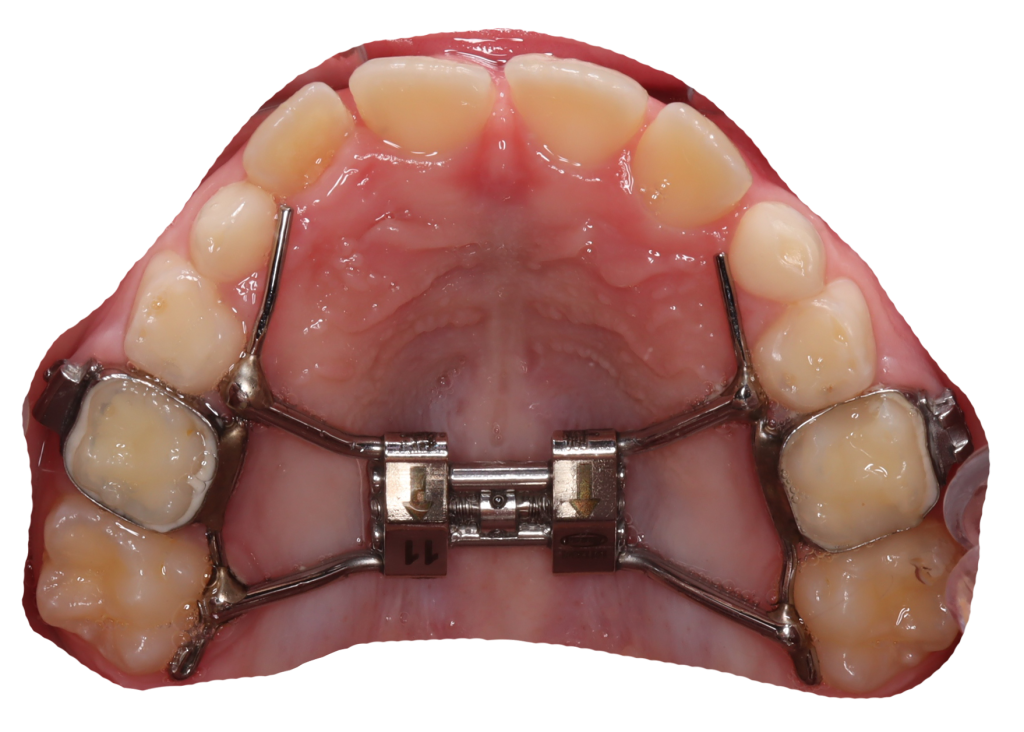
1. Offer a Variety of Foods
Introduce your child to a wide range of fruits, vegetables, whole grains, and lean proteins. Encourage them to try new foods and flavors to expand their palate and develop a taste for healthy options.
2. Limit Sugary and Sticky Foods
Avoid giving your child excessive amounts of sugary and sticky foods, such as candies, sodas, and chewy snacks. These can get stuck in the expander and increase the risk of dental issues.
Instead, opt for healthier alternatives like fresh fruits, yogurt, and nuts as snacks. Encourage your child to drink water instead of sugary beverages to maintain good oral health.
3. Ensure Adequate Calcium Intake
Calcium is essential for strong teeth and bones. Make sure your child consumes enough calcium-rich foods, such as milk, cheese, yogurt, and leafy green vegetables. You can also consider giving them calcium supplements if recommended by their dentist or orthodontist.
4. Encourage Proper Chewing

The palate expander may initially cause some discomfort and affect your child’s chewing ability. Encourage them to take smaller bites and chew slowly to minimize any discomfort. This will also help prevent any damage to the expander.
5. Involve Your Child in Meal Planning

Engage your child in meal planning and preparation. Let them choose healthy recipes and involve them in grocery shopping. This will make them more invested in their food choices and increase their willingness to try new, healthy options.
By promoting healthy eating habits, you can support your child’s overall oral health and help them adjust to the palate expander more easily. Remember to consult with your child’s dentist or orthodontist for personalized advice and recommendations.
Managing Speech Changes
Firstly, be patient with your child. It may take some time for them to get used to speaking with the palate expander. Encourage them to practice their speech and offer positive reinforcement when they make progress. Remind them that it’s normal to have some difficulty at first, but with time and practice, it will become easier.
Additionally, you can work with a speech therapist to help your child overcome any speech challenges caused by the palate expander. A speech therapist can provide exercises and techniques to improve speech clarity and pronunciation. They can also offer guidance on how to communicate effectively with the device in place.
It’s also important to create a supportive environment for your child. Encourage them to speak up and express their feelings about the changes in their speech. Let them know that you understand and are there to support them. Avoid criticizing or making fun of their speech difficulties, as this can negatively impact their self-esteem.
Lastly, keep in touch with your child’s orthodontist and inform them of any concerns or issues regarding speech changes. They can provide guidance and make any necessary adjustments to the palate expander to improve speech function.
| Tips for Managing Speech Changes: |
|---|
| Be patient with your child |
| Encourage speech practice |
| Work with a speech therapist |
| Create a supportive environment |
| Keep in touch with the orthodontist |
By following these tips, you can help your child manage the speech changes that come with a palate expander. Remember to be patient, supportive, and proactive in seeking professional help if needed. With time and support, your child will adjust and develop their speech skills while wearing the device.
Providing Emotional Support
Undergoing orthodontic treatment can be a challenging and emotional experience for a child, especially when it involves a palate expander. As a parent, it is essential to provide your child with the emotional support they need during this time.
One way to provide emotional support is by educating your child about the benefits of the palate expander. Explain how it will help improve their oral health and enhance their smile in the long run. This knowledge can give them a sense of purpose and motivation to endure any temporary discomfort.
Creating a positive and supportive environment at home is also essential. Celebrate small milestones and achievements throughout the treatment process. This can include praising your child for diligently following oral hygiene routines or sticking to a healthy eating plan. Positive reinforcement can boost their confidence and make the experience more manageable.
Lastly, don’t forget to schedule regular check-ups and adjustments with the orthodontist. These appointments provide an opportunity for your child to ask questions and address any concerns they may have. Knowing that they have a dedicated professional overseeing their progress can provide a sense of security.
Regular Check-ups and Adjustments

During these check-ups, the orthodontist will examine your child’s mouth and palate to ensure that the expander is working effectively. They may also make adjustments to the expander if needed, such as tightening or loosening it to achieve the desired results.
These appointments are crucial for ensuring that the expander is doing its job correctly and that your child’s treatment plan is on track. Regular check-ups also allow the orthodontist to address any concerns or issues that may arise during the treatment process.
During these appointments, the orthodontist will also evaluate your child’s progress and discuss any necessary changes or modifications to the treatment plan. They may provide guidance on how to care for the expander and offer tips to help your child adjust to any discomfort or speech changes that may occur.
Regular check-ups and adjustments are crucial for ensuring the success of your child’s palate expander treatment. By staying on top of these appointments and following the orthodontist’s recommendations, you can help your child achieve the desired results and maintain optimal oral health.

Dr. Fidel Cann: Esteemed orthodontist with a lifelong dedication to enhancing smiles and oral health. Pioneering expertise, compassionate care.

